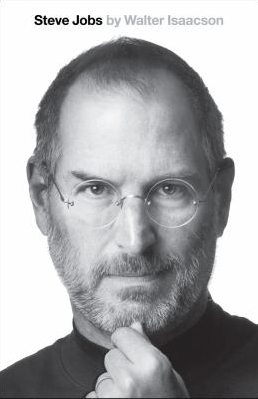

By Patrick B. McGuigan | Oklahoma Watchdog
OKLAHOMA CITY — Two years ago this month — Aug. 24, to be precise — Steve Jobs stepped down as chief executive officer of Apple. A few weeks later he died.
On Friday, “Jobs”, a movie starring Ashton Kutcher, opens Friday in theaters. This winter, another flick will recount Apple product launches of recent decades.
Neither film is truly based on Walter Isaacson’s authorized biography, “Steve Jobs”, published shortly before Jobs’ death. Jobs promised he would not expect veto power, and kept his word. The book delivers a businessman’s story, warts and all, with uniquely detailed insights into a self-confessed “assholic.”
Readers move from Jobs’ childhood adoption through drug experimentation — onto his rise, fall and rise again in business, and his unwillingness to react in the initial stages of a health crisis in the early 2000s.
Jobs, both the “geek” and the seemingly dysfunctional father, friend and husband, is laid bare. An early blend of Buddhism and agnosticism, then a generic almost-monotheism in later life, is made understandable.
Was Steve Jobs really a dysfunctional human being, little more than a brilliant self-consumed narcissist?
That’s a tough one. Even the most saintly among us are made of flesh and blood, not plaster or acrylic. Success and failure in a given life are often mysterious, mystical and spiritual.
Jobs drew close to his birth sibling and to their mother, but never sought reconciliation with his birth father. Perhaps abandonment shaped him as the prickly perfectionist illustrated on page after page in this biography.
As for his manipulative abilities, when one Apple product was on the verge of failure, Jobs held a lengthy give-and-take interview with reporters, many of them among his most ardent critics.
His disarming candor and clear-eyed detailing of rescue plans in the production pipeline resulted in positive news coverage, a surge in Apple’s stock value, and a dramatic increase in sales.
Isaacson recounts Jobs’ criticisms of American public education. He told PresidentBarack Obama the nation’s schools were “crippled by union work rules.” Then, at a dinner meeting of Silicon Valley leaders, Jobs told Obama that America needed more trained engineers, and that immigration laws should be crafted to encourage such people to come and stay here.
Jobs said Apple had 700,000 factory workers in China because he needed 30,000 engineers scattered around manufacturing sites — and “you can’t find that many in America to hire.” He preferred Obama to assorted Republicans, but told Isaacson he was infuriated by Obama’s excuses for an inability to get things done.
Jobs sat for 40 long interview sessions. Isaacson interviewed more than 100 individuals. This is the insider story of perhaps the greatest entrepreneur of modern history.
After his self-chosen board of directors fired him, Jobs went into digital animation, before a third coming as leader of Apple. Then, he transformed an already epochal industry.
His products changed the world. Apple II, the MacIntosh, Pixar films like “Toy Story,” Apple Stores, the iPod, the iTunes store, the iPhone, the App Store, theiPad, iCloud, and, as Isaacson puts it, “Apple itself, which Jobs considered his greatest creation, a place where imagination was nurtured, applied, and executed in ways so creative that it became the most valuable company on earth.”
Jobs was not dysfunctional. His focus on perfection drove away friends and early colleagues — most (but not all) of whom eventually reconciled.
Isaacson captures well the love-hate relationship between Jobs and Microsoftfounder Bill Gates. The pair agreed to a joint interview at the May 2007 “All Things Digital” conference.
Each spoke “warily, then warmly, about the other.” Gates, recalling one of their joint projects, said, “I’d see Steve make the decision based on a sense of people and product that, you know, is hard for me to explain. The way he does things is just different and I think it’s magical.”
Jobs admitted, recalling his early years in Silicon Valley, that for all his criticisms of Microsoft, “we (at Apple) weren’t so good at partnering with people. And I think if Apple could have had a little more of that in its DNA, it would have served it extremely well.”
Later, as Jobs was dying, Gates had a last visit with his friend and rival that is tenderly recounted by Isaacson.
Since Jobs’ death, hand-picked successor Tim Cook has battled disappointments with some products. Still, Fortune Magazine recently designated Apple as “the second most profitable company in the world.” The company’s revenue has increased 11 times since 2006.
Isaacson’s book is one of the best biographies of this generation.
Contact Patrick McGuigan at Patrick@capitolbeatok.com.

Steve Jobs by Walter Isaacson
GOTO: https://www.amazon.com/exec/obidos/ASIN/B00B1VXVIU…
Free shipping. Steve Jobs by Walter Isaacson UpTo 40% Off Don't Miss These Awesome Deals!
GOTO:
==>>> Click Here Low Price Today <<<==</a>
Special Offers This Month ! Steve Jobs by Walter Isaacson Savings While Stocks Last!
It' is not complety secure too. Is better not use thid for serious information , all in the internet say about it . What is worst ? Telecomunications insecurity or soldiers using smathphones without careless. Sometimes the guilty is not of the user else the guy that give it to the user or noth teach how to use with security. technology isn't for all . All people isn't careless.
Managed IT Services
Comments are closed.